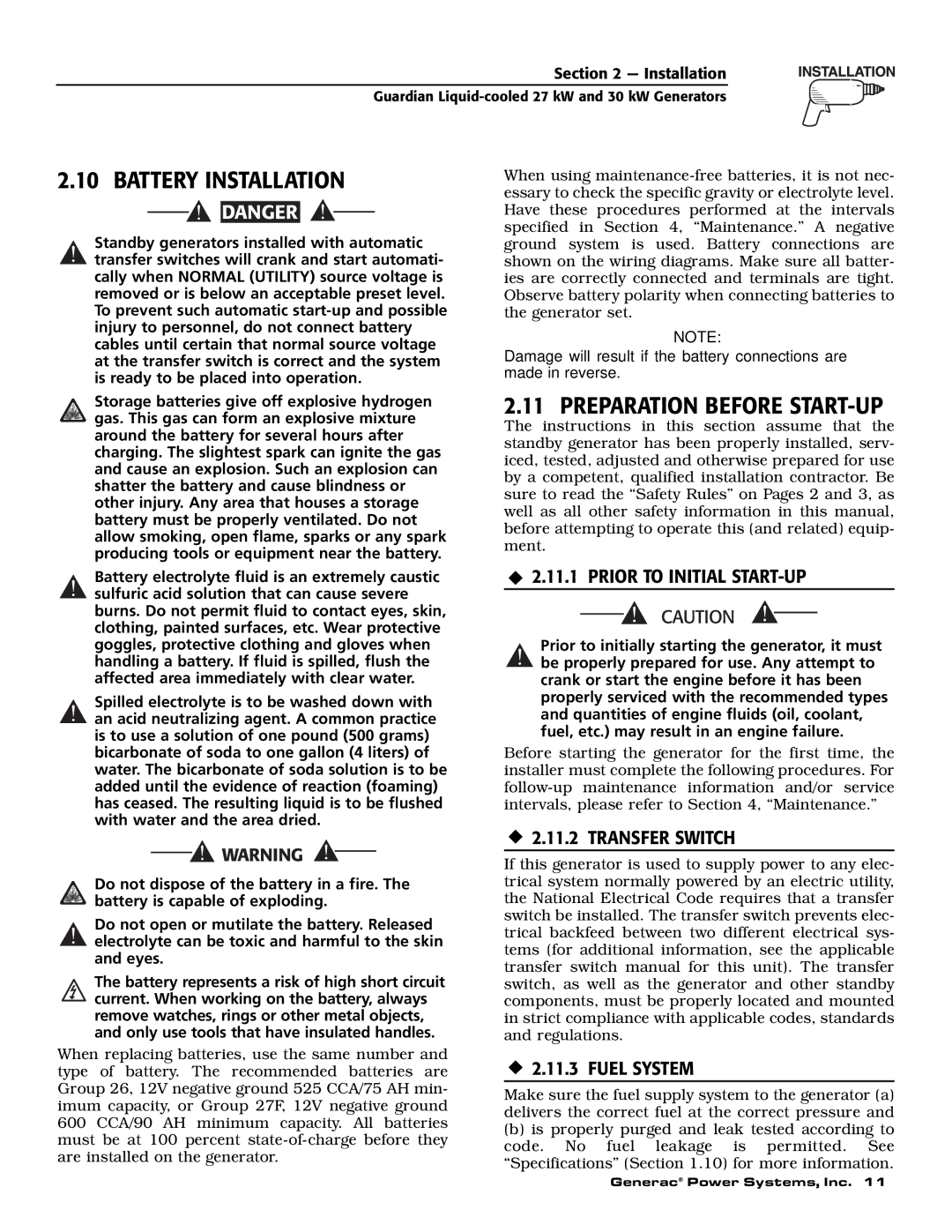004988-1 specifications
Generac Power Systems has established itself as a leader in the generator industry, and the Generac Power Systems 004988-1 model exemplifies the company’s commitment to innovation, reliability, and performance. This standby generator is designed to provide seamless power solutions for both residential and commercial applications, ensuring that users remain connected and comfortable even during power outages.One of the standout features of the 004988-1 model is its automatic transfer switch (ATS), which allows for instant power restoration within seconds of an outage. The ATS continuously monitors the electrical supply and automatically engages the generator when it detects a power failure, eliminating any stress or inconvenience for the user. This feature is particularly beneficial for those who may be away from home during an outage or for businesses that cannot afford downtime.
The 004988-1 is equipped with a powerful engine capable of delivering up to 20 kilowatts of backup power, sufficient to support essential household appliances and systems, such as HVAC, refrigeration, and lighting. Its robust construction ensures durability and longevity, equipped to withstand the rigors of extended use in various environmental conditions.
Another significant characteristic of this model is its emission-friendly design. Generac has incorporated advanced technologies to meet and exceed EPA standards, resulting in a cleaner and more environmentally friendly operation. The generator runs on natural gas or liquid propane, providing users with flexible fuel options and reducing dependency on traditional fuel sources.
Moreover, the 004988-1 comes with smart technology features, including Wi-Fi connectivity. This allows users to monitor and control their generator remotely via a smartphone app. Users can receive real-time notifications, monitor power usage, and conduct maintenance checks, ensuring peak performance of their generator.
The quiet operation of the 004988-1 is also noteworthy, making it an attractive option for residential areas where noise levels can be a concern. Generac has integrated sound-dampening technology, ensuring that the generator operates with minimal noise, allowing users to enjoy peace of mind without disruption.
In summary, the Generac Power Systems 004988-1 is a robust, reliable, and technologically advanced generator that seamlessly integrates into any household or commercial setup. With its automatic transfer switch, high power output, environmentally friendly design, smart technology features, and quiet operation, it stands out as an excellent choice for individuals seeking a dependable power solution for any situation.

